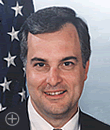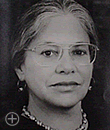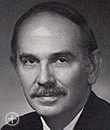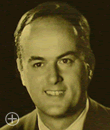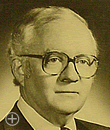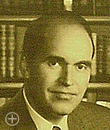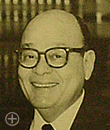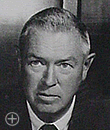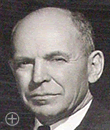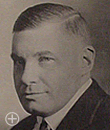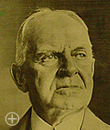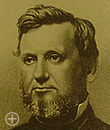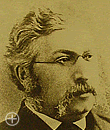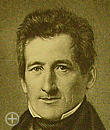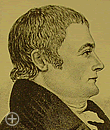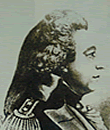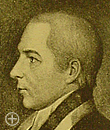Andrew J. Bruck Acting Attorney General 2021-2022 (July-February)
 Andrew J. Bruck was appointed by Governor Philip D. Murphy as Acting Attorney General in July 2021. He joined the Office of the Attorney General in January 2018 and served as Executive Assistant AG and then First Assistant AG.
Andrew J. Bruck was appointed by Governor Philip D. Murphy as Acting Attorney General in July 2021. He joined the Office of the Attorney General in January 2018 and served as Executive Assistant AG and then First Assistant AG.
Previously, Bruck spent five years at the U.S. Department of Justice, where he served as an Assistant U.S. Attorney in Newark, New Jersey and held several roles in the office of U.S. Deputy Attorney General Sally Yates, including Senior Counsel and Acting Chief of Staff. Before that, Bruck worked as a litigation associate in the New York office of Davis Polk & Wardwell and clerked for Chief Justice Stuart Rabner of the New Jersey Supreme Court.
A graduate of Princeton University and Stanford Law School, Bruck is a New Jersey native who currently resides in Trenton with his husband Adam and daughter Libby. Bruck is the first member of the LGBTQ+ community to serve as New Jersey’s chief law enforcement officer.
Gurbir S. Grewal Attorney General 2018-2021
 Governor Philip D. Murphy announced his intention to nominate Gurbir S. Grewal to serve as New Jersey’s 61st Attorney General on December 12, 2017. He was confirmed by the New Jersey Senate and assumed the office on January 16, 2018.
Governor Philip D. Murphy announced his intention to nominate Gurbir S. Grewal to serve as New Jersey’s 61st Attorney General on December 12, 2017. He was confirmed by the New Jersey Senate and assumed the office on January 16, 2018.
Since assuming office, Attorney General Grewal has focused his attention on protecting the interests of New Jersey residents by expanding affirmative litigation, strengthening police-community relations, reducing violent crime and fighting the opioid epidemic.
Before becoming New Jersey Attorney General, Grewal served as Bergen County Prosecutor, the chief law enforcement officer of the most populous county in New Jersey and home to nearly 1 million residents living in 70 municipalities. As Bergen County Prosecutor, Grewal supervised a staff of 265 personnel and had supervisory authority over approximately 2,700 sworn law enforcement officers across 74 law enforcement agencies. Among other accomplishments during his tenure, he developed and implemented several creative approaches designed to tackle the heroin and opioid crisis, including “Operation Helping Hand,” a program that offers low-level drug offenders treatment options upon arrest. He also established a Community Affairs Unit, which is dedicated to assisting local departments improve police/community relations.
From 2010 to 2016, Grewal worked as an Assistant United States Attorney (“AUSA”) in the Criminal Division of the United States Attorney’s Office for the District of New Jersey, where he served as Chief of the Economic Crimes Unit from 2014 to 2016 and oversaw the investigation and prosecution of all major white collar and cybercrimes in the District of New Jersey. He was the lead prosecutor in United States v. Drinkman, et al., the largest known data breach prosecution in which the conspirators participated in a worldwide scheme that targeted major corporate networks and stole more than 160 million credit card numbers, causing hundreds of millions of dollars in losses. He was also the lead prosecutor in United States v. Weinstein, et al., a $200 million Ponzi scheme in which the lead defendant was sentenced to 24 years’ imprisonment.
Before becoming a federal prosecutor in New Jersey, Grewal also served as an AUSA in the Criminal Division of the United States Attorney’s Office for the Eastern District of New York from 2004 to 2007, where he was ultimately assigned to the Business and Securities Fraud Unit. As an AUSA in the Eastern District of New York, he investigated and prosecuted a wide range of narcotics offenses, white collar crimes, and terrorism cases. His significant matters included the successful prosecution of 12 men charged with providing material support to the Tamil Tigers terrorist organization.
In addition to his work as a federal prosecutor, Grewal has also worked in private practice, including at Howrey LLP (from 1999 to 2004 in Washington, D.C., and from 2008 to 2010 in New York, NY). While at Howrey LLP, he counseled clients on a range of matters including securities, trademark, antitrust and Foreign Corrupt Practices Act issues; represented individuals and companies in government investigations and criminal proceedings; conducted internal investigations for public corporations; and conducted civil trials.
Attorney General Grewal graduated cum laude with a Bachelor of Science in Foreign Service from the Georgetown University School of Foreign Service in 1995. He obtained his law degree from the College of William & Mary, Marshall-Wythe School of Law in 1999.
Christopher S. Porrino Attorney General 2016-2018
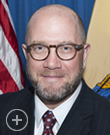 Christopher S. Porrino was nominated to serve as Attorney General of New Jersey on June 16, 2016, and began serving in an acting capacity on June 21, 2016. On August 1, 2016, he was unanimously confirmed by the New Jersey State Senate, and was sworn in as New Jersey’s 60th Attorney General on August 2, 2016. Prior to his nomination, Porrino practiced law as a civil and criminal trial attorney, co-chaired the litigation department of a national law firm, and held several high ranking positions in state government. As Attorney General and head of the Department of Law and Public Safety, Porrino led a number of significant initiatives, several of which were nationwide firsts.
Christopher S. Porrino was nominated to serve as Attorney General of New Jersey on June 16, 2016, and began serving in an acting capacity on June 21, 2016. On August 1, 2016, he was unanimously confirmed by the New Jersey State Senate, and was sworn in as New Jersey’s 60th Attorney General on August 2, 2016. Prior to his nomination, Porrino practiced law as a civil and criminal trial attorney, co-chaired the litigation department of a national law firm, and held several high ranking positions in state government. As Attorney General and head of the Department of Law and Public Safety, Porrino led a number of significant initiatives, several of which were nationwide firsts.
Opioid Crisis. Porrino made combating the opioid epidemic a priority of his tenure as Attorney General, using the department’s broad civil and criminal powers to battle the crisis on all fronts. Under his leadership, the department created and successfully enacted what were then the strictest rules in the country aimed at curtailing the over-prescription of highly addictive pain medications, and proposed regulations to prevent prescribing physicians from being influenced by gifts and other rewards from pharmaceutical companies. He aggressively targeted “pill mills” and professionals engaged in indiscriminate prescribing, resulting in more civil and criminal charges filed against medical professionals during his term than in any comparable period in the history of the department. He also oversaw the significant expansion of New Jersey’s Prescription Monitoring Program (PMP), including the implementation of mandatory PMP look-ups by prescribers, and the provision of interconnectivity with PMPs from numerous other states. On the litigation front, Porrino’s office filed complaints against Insys Therapeutics, Inc., as well as the founder of the company, for consumer fraud and false claims related to Insys’ powerful opioid-fentanyl drug known as Subsys. The State also sued Purdue Pharma under Porrino’s leadership, alleging the company boosted profits by deceptively marketing highly addictive pain medications.
Criminal Justice (i.e., Bail) Reform. During his tenure, Porrino oversaw successful implementation of bail reform in New Jersey, perhaps the most significant reform in the history of New Jersey’s criminal justice system. Under bail reform, cash bail was largely eliminated. Using a validated risk assessment tool, dangerous and high-risk defendants may now be held in custody and can no longer “buy” their way out of jail pending trial. Conversely, those charged with less serious offenses are no longer detained in custody pending trial because their economic circumstances do not permit them to post cash bail.
Violent Crime Reduction. As Attorney General, Porrino targeted violent crime in New Jersey, including gun violence. The department utilized recent changes to New Jersey’s bail system to seek detention for most gun offenses, added new witness protection guidelines to be followed by county prosecutors, and secured collaboration with federal partners in order to obtain the longest sentences possible for violent gun offenders.
Most recently, Porrino oversaw the most successful statewide gun buyback in state history, taking almost 5,000 guns out of circulation over a single weekend through simultaneous buybacks in three cities. In addition, he laid the groundwork for a multi-agency effort to address critical public safety issues in Trenton, New Jersey’s capitol city. The effort’s keynote initiatives include demolition of abandoned structures and the installation of surveillance cameras at strategic locations in the city.
Corruption. Porrino made fighting public corruption a focus during his tenure. To help identify potential cases of corruption, the office launched an Anti-Corruption Whistleblower Program that encouraged eligible individuals to self-report their involvement in criminal activity, and offered a reward of up to $25,000 for tips from the public that lead to a corruption-related criminal conviction. In addition to many other corruption prosecutions, the office indicted and convicted Paterson Mayor Jose “Joey” Torres and three Paterson city employees on corruption charges. Torres, mayor of New Jersey’s third largest city, was sentenced to five years in prison for using on-duty city employees to assist with a family business. As part of his sentencing, he is permanently barred from holding public office.
Elder Abuse. With elder abuse cases on the rise, the New Jersey Attorney General’s Office became the country’s first to loan hidden cameras to citizens suspecting elder abuse and neglect. The “Safe Care Cam Program” gives participants the opportunity to covertly observe the care being given to their loved ones, thereby providing a means to determine if neglect or abuse are taking place.
Child Protection. Announcing early in his term that child protection would be a priority under his leadership, Porrino advanced several important child protection measures. In 2016, he drafted and then shepherded legislation that significantly strengthened New Jersey’s child protection statutes, increasing penalties for those engaged in the possession and distribution of child pornography, and criminalizing “child erotica” for the first time in New Jersey. The department also aggressively investigated and prosecuted persons who endangered children through the distribution and manufacturing of child pornography, and through online trafficking of children. During Porrino’s tenure, the department announced two major child protection operations: “Operation Statewide,” a statewide sweep that resulted in the arrest of 40 men on child pornography charges, and “Operation Safety Net,” which employed the only dually-trained electronics and patrol canine in the world – as well as a state-of-the- art mobile forensics lab — to net a total of 79 internet and social media child predators and child pornography offenders. The sweep included 10 “hands-on” child predators, consistent with Porrino’s focus on identifying and arresting individuals who had access to children and sought out children online. Porrino’s focus on child protection armed the department with cutting-edge investigative tools to identify those who would seek to harm children online, as well as stronger statutes under which to prosecute these child predators.
Distracted Driving. With traffic deaths along New Jersey’s roads rising, Porrino spearheaded a distracted driving campaign to encourage the public to report violations through the State’s #77 hotline. The #77 program was expanded in April 2017 to address a burgeoning number of distracted drivers. The new initiative opened up #77 to callers reporting drivers using cell phones, or otherwise driving distracted. The New Jersey State Police send warning letters to drivers who are reported.
The letters inform motorists that their vehicles have been spotted being driven dangerously or by a distracted driver, and warn of the penalties if ticketed by police. During the first few months of the new initiative, more than 2,000 calls were tracked.
Civil Rights and Diversity. With hate crimes and bias incidents on the rise, Porrino and the department aggressively prosecuted civil rights violations and acts of discrimination. Cases included an international hotel chain accused of allowing unequal pay for women, an employer who fired a woman for taking maternity leave, entities that placed discriminatory housing ads on Craigslist, and a landlord who refused to rent to Muslims. These efforts dovetailed with the department’s commitment to continuing education for law enforcement on cultural awareness and implicit bias. With more than 20 percent of bias and hate crimes in New Jersey being committed by young people, Porrino’s office also developed anti-bias training for school students. In another first, Porrino created and filled the position of Chief Diversity Officer to oversee and promote diversity in the department.
Police/Community Relations. Working to improve trust between police and the communities they serve, Porrino created the first ever Community Policing Award Program to encourage community policing efforts and share best practices. Porrino also founded implemented the first statewide Community Policing Grant Program, named in honor of fallen Summit Police Officer Matthew Tarentino. In the fall of 2016, the department created and mandated the first-ever statewide continuing education curriculum to train police on de-escalation, cultural awareness, and implicit bias. In the fall of 2017, the department launched an educational “Safe Stop” campaign focused on helping communities understand their rights and the law when interacting with law enforcement. The initiative, which specifically aims to reduce tension during traffic stops, includes endorsement videos from NBA basketball great Shaquille O’Neal and former New York Giants linebacker and NFL Pro Bowl selectee Jessie Armstead.
Juvenile Justice Reform. New Jersey serves as the national model for statewide implementation of the Annie E. Casey Foundation’s Juvenile Detention Alternatives Initiative (JDAI), which has resulted in drastic population reductions at juvenile correctional facilities throughout the state. Delegations from across the country have traveled to New Jersey to learn how it has reduced the state’s detention population by 60 percent. Continuing these reforms under Porrino’s leadership, the JJC underwent a process to examine its facilities, incorporating the latest research in adolescent brain development and proven rehabilitative efforts (such as the broad implementation of trauma-informed care). The department also reduced the use of room restriction or isolation, and promoted family engagement while enhancing and expanding community-based services. These efforts culminated in the planned closure of a Civil War era youth prison known as Jamesburg, a reform considered to be one of the most significant in the history of New Jersey’s juvenile justice system.
Litigation. Under Porrino, the Division of Law (DOL) obtained more than $289 million on behalf of the State in calendar year 2017 through settlements, judgments and other litigation efforts. The dollar amount obtained by DOL represented an increase of approximately $100 million over the amount obtained the prior year. Monies obtained on behalf of the State included settlements and judgments resulting from environmental litigation, taxation matters, and legal action related to consumer, securities and other fraud, as well as other types of affirmative litigation and debt recovery actions. Litigation-related payouts by the State in 2017 totaled approximately $70.7 million, a reduction of approximately $17 million compared to the prior year.
Public Communication. At Porrino’s direction, the department began sharing information and providing other public updates through social media, such as Instagram, Facebook, and Twitter for the first time in its history. These efforts increased transparency into the operations of the department and have provided real-time information sharing and feedback for and from members of the public.
From January 2014 through July 2015, Porrino served as Chief Counsel to Governor Christie. On his first day as Chief Counsel, the matter known as “Bridgegate” broke in the news media. As Chief Counsel, Porrino navigated the Governor’s Office through that crisis and the myriad legal issues that followed. In that role, he also had broad responsibility overseeing appointments, legislative matters, and all state authorities. He worked closely with the Governor and members of the Legislature in a bi-partisan effort to secure the passage of numerous pieces of critical legislation, including the Criminal Justice Reform Act that focused on bail reform.
Before serving as Chief Counsel to the Governor, Porrino served as Director of the Division of Law in the Attorney General’s Office. As Director of the Division of Law from February 2012 to January 2014, Porrino oversaw a team of 800 state employees, 500 of whom were lawyers. Under his leadership, DOL achieved important outcomes in historic litigation, including the landmark Harvey Cedars “dunes” case decided in 2013, which Porrino argued before the New Jersey Supreme Court. The Harvey Cedars decision paved the way for State-sponsored shore protection and dune construction projects that followed.
Prior to his government service, Porrino was a partner and co-chair of Lowenstein Sandler’s national litigation department, where he focused on criminal and civil trial practice. During his tenure at Lowenstein Sandler, Porrino represented clients in a wide array of matters involving securities, banking, insurance, tax, antitrust, real estate, and the environment, among others. He began his legal career as a law clerk to then-Magistrate Judge Freda L. Wolfson, U.S. District Judge for the District of New Jersey.
As Attorney General, Porrino was recognized by various organizations for his leadership. He received the Ner Tamid, Eternal Light Award from the Chabad House – Lubavitch, 2016; the Achievement Award from the National Organization of Black Law Enforcement Executives (NOBLE) for “Bridging the Gap between Communities and Police,” 2017; and the Public Servant Award from Seton Hall University School of Law, 2017. Porrino makes every effort to mentor new attorneys, encouraging them to build their reputations as leaders, to be “doers” in their communities, and to persevere when times get tough.
A resident of Union County, Porrino graduated from Lehigh University and received his law degree from Seton Hall University School of Law. He is admitted to the bars of the State of New Jersey and the State of New York, and is admitted to practice in the U.S. District Court for the District of New Jersey, the U.S. District Court for the Southern District of New York, and the U.S. Court of Appeals, Third Circuit.
Robert Lougy Acting Attorney General 2016 (March - June)
 Robert Lougy became Acting Attorney General on March 15, 2016. He served as Acting Attorney General until being confirmed as a Superior Court Judge on June 23, 2016
Robert Lougy became Acting Attorney General on March 15, 2016. He served as Acting Attorney General until being confirmed as a Superior Court Judge on June 23, 2016
Lougy joined the Office of the Attorney General in 2006. He has served the Office and the State of New Jersey in numerous capacities, including First Assistant Attorney General, Chief of Staff and Deputy Director of the Division of Law. During his tenure, he has argued or supervised some of the State’s highest profile and most significant litigation matters, including those involving public education, housing, employee entitlements, and public safety. As First Assistant and Chief of Staff, Lougy was responsible for overseeing and coordinating day-to-day operations of the Department.
Before joining the Office of the Attorney General, Lougy served as a public defender in Essex County. He graduated from Pennsylvania State University in 1994 and received his law degree from Columbia Law School in 2002.
John Jay Hoffman Acting Attorney General 2013-2016
 John Jay Hoffman became Acting Attorney General on June 10, 2013. He served as Acting Attorney General until being named Senior Vice President and General Counsel for Rutgers University on March 14, 2016.
John Jay Hoffman became Acting Attorney General on June 10, 2013. He served as Acting Attorney General until being named Senior Vice President and General Counsel for Rutgers University on March 14, 2016.
He previously served as Executive Assistant Attorney General under former Attorney General Jeffrey S. Chiesa.
A resident of the Marlton section of Evesham Township, Hoffman previously served as Director of the Division of Investigations for the State Comptroller’s Office.
Prior to 2012, Hoffman served for six years as an Assistant United States Attorney for the U.S. Attorney’s Office for the District of New Jersey. In his role as a federal prosecutor, Hoffman focused primarily on economic and white collar criminal prosecutions. From 1996 through 2004, he served as Trial Attorney for the Civil Division of the U.S. Department of Justice in Washington, D.C. He also worked in private practice for the law firm of Akin, Gump, Strauss, Hauer and Feld in Washington, D.C.
Hoffman received his undergraduate degree in 1987 from Colgate University, and his law degree in 1992 from the Duke University School of Law.
In 1992-93 he served as a Post-Doctoral Fellow on the Faculty of Law at the University of Tokyo in Japan, and from 1993-94, he served as judicial clerk for the Honorable Al Engel on the United States Court of Appeals, Sixth Circuit.
While at the State Comptroller’s Office, Hoffman managed a Division of attorneys and special investigators responsible for investigating and reporting on issues of fraud, abuse, waste and corruption within state and municipal government, resulting in the issuance of multiple reports and guidance letters.
In his role as Executive Assistant Attorney General, Hoffman oversaw the operations of the Divisions of Law and Gaming Enforcement, the Racing Commission, and the Offices of Homeland Security and Insurance Fraud Prosecutor (civil), focusing primarily on complex civil, administrative and regulatory matters. He guided Department of Law and Public Safety Directors, senior in-house lawyers, outside counsel and investigators in developing strategic approaches to handling a docket of more than 10,000 cases in state and federal court involving commercial disputes, as well as healthcare, securities, tax, consumer protection, environmental, education financing, housing, and other complex multi-party and multi-state enforcement matters. He also served as Acting Attorney General for all civil cases for which the Attorney General was recused including, but not limited to, multi-billion dollar environmental litigation, health care fraud settlements and charitable trust oversight.
Jeffrey S. Chiesa Attorney General 2012-2013
 On January 10, 2012 Jeffrey S. Chiesa was sworn in as New Jersey’s 59th Attorney General. He served as Attorney General until being appointed as a NJ Senator by Governor Christie on June 6, 2013 replacing the late Senator Frank Lautenberg.
On January 10, 2012 Jeffrey S. Chiesa was sworn in as New Jersey’s 59th Attorney General. He served as Attorney General until being appointed as a NJ Senator by Governor Christie on June 6, 2013 replacing the late Senator Frank Lautenberg.
Chiesa served as Chief Counsel to Governor Chris Christie from January 2010 through December 2011, when he was nominated to be New Jersey Attorney General by Governor Christie.
Prior to his appointment as Chief Counsel, Chiesa served as Executive Director of Governor Christie’s Transition Team. Chiesa was previously a partner at the law firm of Wolf & Samson in their litigation group.
Prior to joining Wolf & Samson, Chiesa worked in the U.S. Attorney’s Office in the District of New Jersey from 2002 – 2009, last serving as the Executive Assistant U.S. Attorney. He also served as Counsel to the U.S. Attorney and as Chief of the Public Protection Unit. Chiesa was involved in all aspects of the U.S. Attorney’s Office, including the management of the Criminal, Civil, Appeals and Special Prosecutions Divisions.
As a unit chief, he supervised a group of Assistant U.S. attorneys primarily responsible for the investigation and prosecution of criminal cases involving bank robbery, child pornography, human trafficking and identity theft. Prior to joining the U.S. Attorney’s Office, Chiesa was a partner at the law firm of Dughi and Hewit, where he litigated civil matters, including the representation of medical professionals and hospitals.
Chiesa is a graduate of the University of Notre Dame, where he earned his Bachelor of Business Administration in Accounting. He earned his Juris Doctorate from The Catholic University of America
Paula T. Dow Attorney General 2010-2012
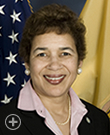 Paula Dow, one of the first Cabinet appointments announced by Governor Chris Christie, assumed the position of Acting Attorney General on January 19, 2010. Her nomination as New Jersey’s 58th Attorney General and head of the Department of Law and Public Safety was confirmed by unanimous vote of the Senate Judiciary Committee on February 8, and approved by the full Senate in a vote held February 22, 2010.
Paula Dow, one of the first Cabinet appointments announced by Governor Chris Christie, assumed the position of Acting Attorney General on January 19, 2010. Her nomination as New Jersey’s 58th Attorney General and head of the Department of Law and Public Safety was confirmed by unanimous vote of the Senate Judiciary Committee on February 8, and approved by the full Senate in a vote held February 22, 2010.
Dow, previously served as the Essex County Prosecutor from October 2003. Her six-year tenure in Essex County, the state’s largest and busiest prosecutor’s office, was marked by improved organization, the county’s highest criminal conviction rate since 2000, and a host of successful prosecutions that took dangerous street gangs, drug-dealing operations and other violent criminals off the streets. Under Dow, the prosecutor’s office apprehended and obtained indictments against those accused of the brutal Newark school yard killings of 2007.
Prior to becoming Essex County Prosecutor, Dow served for many years with the U.S. Attorney’s office. From 1994 to 2003, she worked in Newark in the U.S. Attorney’s Office-District of New Jersey. There, she served as Counsel to then U.S. Attorney Christopher J. Christie and prosecuted casesin the Special Prosecutions Division, as well as the Criminal Division. Dow also served in the U.S. Attorney’s Office-Southern District of New York from 1987 through 1994, where she prosecuted and defended cases in the Civil Division.
Prior to joining the U.S. Attorney’s Office, Dow worked from 1980 through 1987 as an attorney for Exxon Company, U.S.A. in Texas, New Jersey and New York. In that capacity she advised clients on exploration and production, environmental and labor matters, and regulatory compliance issues.
Dow began her legal career with the firm of Tomar, Parks, Seliger, Simonoff & Adourian in Camden in 1978 as a summer associate. She earned her B.A. from Franklin and Marshall College in 1977, and her J.D. from the University of Pennsylvania Law School in 1980. She has been admitted to the Bars of New Jersey, New York and Texas; United States Supreme Court; Second and Fifth Circuit Courts of Appeals; United States District Courts for the Southern and Eastern Districts of New York, District of New Jersey, and Northern and Southern Districts of Texas. She is a member of the New Jersey State Bar Association, the Essex County Bar Association, the Association of Black Women Lawyers of New Jersey and the Garden State Bar Association.
Anne Milgram Attorney General 2007-2010
 Anne Milgram was sworn in as New Jersey’s 57th Attorney General on June 29, 2007 after serving for the previous 17 months as the First Assistant Attorney General. As the State’s chief law enforcement officer, Milgram heads the 9,000-person Department of Law and Public Safety, one of the largest agencies in New Jersey state government.
Anne Milgram was sworn in as New Jersey’s 57th Attorney General on June 29, 2007 after serving for the previous 17 months as the First Assistant Attorney General. As the State’s chief law enforcement officer, Milgram heads the 9,000-person Department of Law and Public Safety, one of the largest agencies in New Jersey state government.
The department includes nine divisions as well as independent commissions and boards. The Attorney General oversees the state’s criminal justice system, the Division of State Police, and defends the state against lawsuits.
Milgram has spearheaded investigations into gang violence, public corruption, gun trafficking, and mortgage foreclosure and debt reduction schemes. Investigations have led to state grand jury indictments of state legislators, mayors and municipal council members on a variety of misconduct and conspiracy charges. Milgram forged an unprecedented partnership with the Bureau of Alcohol Tobacco Firearms and Explosives (AFT) to trace the ownership of guns used in the commission of crimes in New Jersey and she is in charge of the implementation of the Governor’s Strategy for Safe Streets and Neighborhoods, which is aimed at street gangs and violent criminals.
A series of initiatives undertaken by county prosecutors throughout the state in 2008 and 2009 have led to the arrest of nearly 5,000 criminals, charged with a variety of offenses including murder, attempted murder, illegal narcotics distribution and possession, and illegal weapons charges. Milgram successfully advocated for tougher penalties for the illegal possession of weapons and has the leading role in coordinating crime prevention programs to help at-risk youth and convicted offenders re-entering society.
In 2007, she launched an affirmative litigation section in the Division of Law to aggressively pursue legal action to protect the public in New Jersey. The section has pursued mortgage fraud cases against nearly 100 defendants who attempted to exploit homeowners facing foreclosure. She also spearheaded New Jersey’s first-in-the-nation statewide mandatory mortgage foreclosure mediation program, which provides homeowners in foreclosure with free housing counselors and attorneys to help workout loan modifications with mortage servicers.
She has pursued both criminal and civil investigations in policing the Internet and created a first in the nation reporting mechanism for the users of social networking sites to report instances of on-line abuse and cyber bullying.
Milgram began her career as an assistant district attorney in the Manhattan District Attorney’s office in New York in September 1997. In 2001, she went to work in the criminal section of the United States Department of Justice’s civil rights division, where she rose to become the lead federal prosecutor in the nation for human trafficking crimes. Milgram was awarded the Department of Justice Special Commendation for Outstanding Service in December 2004 and the Director’s Award in September 2006. Milgram left the Department of Justice in 2005 and became counsel to then U.S. Senator Jon Corzine and returned to New Jersey when Corzine was elected governor.
Milgram graduated summa cum laude from Rutgers College in 1992 with a degree in English and political science, and received a master of philosophy degree in social and political theory in 1993 from the University of Cambridge in England. She received her law degree from New York University in 1996 and clerked for U.S. District Court Judge Anne E. Thompson in Trenton from 1996 to 1997.
Stuart Rabner Attorney General 2006-2007
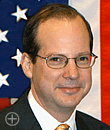 Attorney General Stuart Rabner was sworn into office on September 26, 2006 after unanimous confirmation by the New Jersey State Senate. A career federal prosecutor, Rabner was serving as Governor Jon S. Corzine’s chief counsel since January 2006 when the Governor nominated him to head the 9,600-person Department of Law and Public Safety. “There are few people in my experience with the integrity, intelligence and commitment to excellence that Stu Rabner has demonstrated over the course of his career,’’ Governor Corzine said in nominating Rabner.
Attorney General Stuart Rabner was sworn into office on September 26, 2006 after unanimous confirmation by the New Jersey State Senate. A career federal prosecutor, Rabner was serving as Governor Jon S. Corzine’s chief counsel since January 2006 when the Governor nominated him to head the 9,600-person Department of Law and Public Safety. “There are few people in my experience with the integrity, intelligence and commitment to excellence that Stu Rabner has demonstrated over the course of his career,’’ Governor Corzine said in nominating Rabner.
As the chief law enforcement officer in the state, Rabner oversees the Division of Criminal Justice, the New Jersey State Police, the Division of Consumer Affairs and the Division of Civil Rights, in addition to overseeing seven other agencies that are part of the department. He is also the chief legal representative to all other departments in state government through the Division of Law.
Rabner, 46, served in the U.S. Attorney’s Office in Newark from September 1986 to December 2005. He was chief of the criminal division when he left to join the Corzine administration. Previously, he was first assistant U.S. attorney, executive assistant U.S. attorney, chief of the terrorism unit, and deputy chief of the special prosecutions division. Following the September 11, 2001 terrorist attacks on the World Trade Center, the Pentagon and United Flight 93, which crashed in Pennsylvania, Rabner supervised the U.S. Attorney’s Office investigation in New Jersey, working at a joint command post with federal, state and local enforcement officials.
Earlier in his career, Rabner was a lead attorney for the organized crime drug enforcement task force, prosecuting money laundering and drug trafficking cases.
Rabner’s federal career was notable for his prosecution of corrupt public officials, including former Hudson County Executive Robert Janiszewski in 2002 and former Somerset County Prosecutor Nicholas Bissell in 1996. In 2005, he prosecuted Hemant Lakhani, a British national who attempted to purchase shoulder-fired, surface-to-air missiles for terrorists. Lakhani was convicted after trial and sentenced to 47 years in prison.
Rabner grew up in Passaic and was graduated summa cum laude in 1982 from the Woodrow Wilson School of Public and International Affairs at Princeton University. He graduated cum laude from Harvard Law School in 1985. He clerked for U.S. District Court Judge Dickinson R. Debevoise from September 1985 to September 1986. Rabner is married and has three children.
Zulima V. Farber Attorney General 2006 (January-August)
 Zulima V. Farber was sworn in as New Jersey Attorney General on January 30, 2006. As the State’s first Hispanic Attorney General, Farber brought to the position more than 30 years of experience as a trial and appellate lawyer in both state and federal courts, as well as an extensive background in government administration.
Zulima V. Farber was sworn in as New Jersey Attorney General on January 30, 2006. As the State’s first Hispanic Attorney General, Farber brought to the position more than 30 years of experience as a trial and appellate lawyer in both state and federal courts, as well as an extensive background in government administration.
When Governor Jon S. Corzine nominated her to become Attorney General, she was a senior partner at the law firm of Lowenstein Sandler, which she joined in 1981. At Lowenstein Sandler, her practice concentrated on commercial litigation, administrative law, health care litigation, employment law and attorney ethics.
Her previous experience in state government included serving as Public Defender and Public Advocate from 1992 to 1994 in the cabinet of Governor James J. Florio. She also served as Assistant Counsel to Governor Brendan T. Byrne from 1978 to 1981.
From 1975 to 1978 she was an assistant prosecutor in Bergen County, dealing with all manner of criminal prosecutions and serving as Chief of the prosecutor’s Grand Jury Section and Assistant Chief of the Trial Section.
Farber was a member, and chairperson, of the New Jersey State Advisory Committee to the U.S. Commission on Civil Rights. She also served on the New Jersey Commission to Review Criminal Sentencing. During the gubernatorial transition, she served as co-chair of Governor Corzine’s Ethics Advisory Group, a bipartisan group principally charged with implementing the Governor’s ethics agenda.
She has served on a number of New Jersey Supreme Court Advisory Committees, including the Advisory Committee on Professional Ethics, the Committee on Criminal Rules and the Committee on Evidence Rules.
In 1971, Ms. Farber was admitted to Rutgers Law School-Newark, where she became a founding member of the Association of Latin American Law Students and also served as the Association’s vice president. She received her JD from Rutgers in 1974. Ms. Farber received her undergraduate and graduate degrees from Montclair State University. She also studied at the University of Madrid, Spain. Attorney General Farber was admitted to the New Jersey Bar in 1974 and the U.S. Supreme Court in 1983.
Ms. Farber resigned as New Jersey Attorney General on August 31, 2006.
Peter C. Harvey Attorney General 2003-2006
Peter C. Harvey was the state’s first African American Attorney General. He was confirmed by the New Jersey Senate on June 16, 2003. Prior to being confirmed as Attorney General, Harvey served as Acting Attorney General. Prior to that, he served for more than a year as First Assistant Attorney General and Director of the Division of Criminal Justice. He also served as a partner in the New Jersey law firm of Riker, Danzig, Scherer, Hyland and Perretti.
Before entering private practice, Harvey served as an Assistant U.S. Attorney for the District of New Jersey. Prior to that, he served as a Special Assistant to the New Jersey Attorney General. Harvey graduated from Morgan State University in 1979. He earned his law degree from the Columbia University School of Law in New York City in 1982. He was admitted to the New York Bar in 1984, the District of Columbia Bar in 1985, and the New Jersey Bar in 1989.
David Samson Attorney General 2002-2003

David Samson was born in Newark, New Jersey on August 14, 1939. Samson received a Bachelor of Arts degree from Rutgers University in 1961 and his law degree from the University of Pennsylvania in 1965. He began his career as law secretary to Associate Justice Nathan L. Jacobs of the state Supreme Court. He was a legal consultant to the Advisory Committee to the Attorney General on Governmental Immunity from 1967 to 1968, the New Jersey Supreme Court Committee on Reporting of Court Decisions from 1973 to 1977, and the District Ethics Committee from 1981 to 1985.
Samson was sworn in as Attorney General on January 15, 2002. Prior to being nominated to the post, he was a senior partner in Wolff & Samson, an 85-attorney law firm of which he was a founding principal. He had previously served the state in several capacities. He was appointed by Governor Thomas H. Kean as chairman of the Governor’s Task Force on the Laws Governing the University of Medicine and Dentistry of New Jersey, and served on the task force from 1987 to 1989. He was appointed by Governor James J. Florio as a member of the Governor’s Commission on Health Care Costs, serving in 1990 and 1991. He was general counsel for the New Jersey Turnpike Authority from 1982 until 1990.
John J. Farmer Attorney General 1999-2002
John J. Farmer, Jr. was born in Jersey City on June 24, 1957. A graduate of Georgetown University, Farmer received his Bachelor of Arts degree in 1979 and his law degree in 1986. Upon receiving his Juris Doctorate, Farmer began his legal career as a law clerk to New Jersey Supreme Court Justice Alan B. Handler. From 1988 to 1990, he was an associate in the law firm of Riker, Danzig, Scherer, Hyland & Perretti in Morristown.
Before joining the Whitman Administration, Farmer served from 1990 to 1994 as an Assistant U.S. Attorney for the District of New Jersey, prosecuting criminal cases that included organized crime, narcotics, white collar crime and kidnapping. In 1993, he received a special achievement award from the United States Department of Justice for his work in the U.S. Attorney’s Trenton office.
In 1997, Governor Christie Todd Whitman appointed Farmer as Chief Counsel. Prior to that he served as Deputy Chief Counsel and Assistant Counsel to the Governor. Farmer was nominated to be Attorney General on March 15, 1999, and confirmed unanimously by the State Senate on May 24, 1999. He was sworn into office on June 3, 1999.
During his term, AG Farmer established the NJ Attorney General’s Advocacy Institute to enhance the administration of justice in the State and ensure the highest degree of professionalism by attorneys representing governmental agencies before the Courts and in administrative proceedings by offering a wide range of programs.
Peter G. Verniero Attorney General 1996-1999
Peter G. Verniero was born in Montclair, New Jersey on April 30, 1959. He attended public schools and graduated Summa Cum Laude from Drew University in 1981. He graduated with honors from Duke University School of Law in 1984, the same year he was admitted to the New Jersey Bar. From 1985 to 1987, Verniero was an associate in the law firm of Pitney, Hardin, Kipp & Szuch.
Verniero served as Chief Counsel to Governor Christie Todd Whitman from January 1994 through February 1995, and then as Chief of Staff to the Governor, the position he held at the time of his nomination to head the Department of Law and Public Safety. Verniero was sworn in as Attorney General on July 10, 1996, replacing Deborah T. Poritz, who was appointed Chief Justice of the New Jersey Supreme Court. He was reappointed in January 1998 as Governor Whitman began her second term.
Deborah T. Poritz Attorney General 1994-1996
Deborah T. Poritz was born in New York on October 10, 1936. She graduated Magna Cum Laude from Brooklyn College in 1958. She studied English and American literature at Columbia University on a Woodrow Wilson fellowship in 1958 and 1959, and did graduate studies in literature at Brandeis University from 1959 to 1962.
Poritz received her law degree from the University of Pennsylvania Law School in 1977 and, in December of that year, became a Deputy Attorney General. In 1981, she was named Assistant Chief of the department’s Environmental Protection Section, and the following year became Deputy Attorney General in charge of appeals.
Poritz later became chief counsel to Governor Thomas H. Kean. She was sworn in as New Jersey’s first female Attorney General on January 18, 1994, the day of Governor Christie Todd Whitman’s Inauguration. Poritz personally argued for the constitutionality of Megan’s Law requirements before the State Supreme Court, which established the validity of the sex-offender legislation in 1995. In that same year, she assumed a pivotal role in insuring the passage of legislation which significantly modernized the juvenile justice system.
Robert J. Del Tufo Attorney General 1990-1993
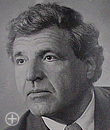
Robert J. Del Tufo was born in Newark, New Jersey on November 18, 1933. He graduated from the Newark Academy and received a Bachelor of Arts degree in 1955 from Princeton University. He received his law degree in 1958 from Yale University School of Law. From 1958 to 1960, he served as legal secretary to Chief Justice Joseph Weintraub of the state Supreme Court. He was admitted to the New Jersey Bar in 1959. He practiced law in Morristown from 1960 through 1974, and was with a Newark law firm from 1980 to 1986.
He served as an assistant prosecutor in Morris County from 1963 to 1965 and as first assistant prosecutor there from 1965 to 1967. Del Tufo, who formerly held the position of U.S. Attorney for New Jersey, was sworn in as Attorney General on January 16, 1990, the day of Governor James Florio’s Inauguration.
Peter N. Perretti, Jr. Attorney General 1989-1990
Peter N. Perretti, Jr. was born in Passaic County, New Jersey on October 4, 1931. He graduated from Colgate University in 1953, and received his law degree from Cornell University Law School in 1956. He clerked for now retired Superior Court Judge Alexander P. Waugh.
Perretti was sworn in as Attorney General on February 14, 1989. He replaced W. Cary Edwards, who resigned. As Attorney General, he led in the prosecution of New Jersey beach polluters, in the development of legislation to restrict automatic weapons, and in improving oversight of the financing of Atlantic City casinos. He also continued the long-established tradition of combating organized crime.
Prior to assuming office, Perretti was a partner in the firm of Riker, Danzig, Scherer, Hyland, and Perretti in Newark. He joined the firm as an associate in 1960 and became a partner in 1963. He served as Assistant Prosecutor in Essex County from 1958 until 1960.
W. Cary Edwards Attorney General 1986-1989
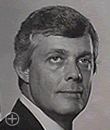
W. Cary Edwards was born in Paterson, New Jersey on July 20, 1944. He graduated from St. Luke’s High School and studied business administration at Seton Hall University, where he received his degree in 1967. He attended Seton Hall School of Law and received his degree in 1970, the year he was admitted to the New Jersey Bar.
Edwards was sworn in as Attorney General on January 21, 1986, the day of Governor Thomas Kean’s second Inauguration, after serving as Chief Counsel to the Governor since the beginning of the Kean administration in 1982. Edwards had been elected to his third consecutive term in the General Assembly and had been chosen by his Republican colleagues as assistant minority leader when Governor Kean recruited him as Counsel.
While serving as Attorney General, Edwards immediately sought to more than triple the size of the Department of Law and Public Safety and initiated a new anti-drug program. He instituted a task force to combat organized crime, planned a virtual overhaul of the Division of Motor Vehicles, and confronted problems such as insurance fraud and state land use planning.
Irwin I. Kimmelman Attorney General 1982-1986
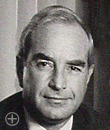
Irwin I. Kimmelman was born in Newark, New Jersey on September 10, 1930. After graduation from Weequahic High School, he studied accounting at the Rutgers University School of Business Administration. After graduation in 1952 he entered Harvard Law School. He won the Roscoe Pound Prize for brief writing and oral argument, and graduated in 1955. He was admitted to the New Jersey Bar the following year after a clerkship with Superior Court Judge Edward Gaulkin.
Kimmelman is among the small group of public officials to serve in each of the three branches of state government. He served in the General Assembly from 1964 to 1966. He was a Superior Court judge from May 1971, through September 1976, when he resigned to return to private law practice. Governor Thomas H. Kean announced his choice of Kimmelman as Attorney General on December 14, 1981. Kimmelman was confirmed by the Senate and sworn in on January 19, 1982, the day of Governor Kean’s Inauguration. During his term, Kimmelman adopted a hands-on approach to administering all operations under his authority and created new guidelines for Division of Criminal Justice Investigators.
James R. Zazzali Attorney General 1981-1982
James R. Zazzali was born in Newark, New Jersey on June 17, 1937. He attended Seton Hall Preparatory School and graduated from Georgetown College in 1958 and Georgetown Law Center in 1962. He served his clerkship with the Honorable Lawrence A. Whipple. After graduation, he was admitted into the Bars of New Jersey, New York, and District of Columbia.
Zazzali served as Chief of the Appeals Division in the Office of the Essex County Prosecutor. He served as general counsel to the New Jersey Sports and Exposition Authority. He served as Chairman of the New Jersey State Commission of Investigation, Vice-Chairman of the Disciplinary Review Board, and served as state Attorney General. At the request of the State Department, he served on United States delegations to various United Nations conferences. He was engaged in the practice of law in the firm Zazzali, Fagella & Nowak, which was founded by his late father and his brother.
Zazzali became a Justice of the New Jersey Supreme Court in June 2000. He had been nominated to the position by Governor Christie Todd Whitman.
John J. Degnan Attorney General 1978-1981
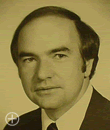
John J. Degnan was born on October 6, 1944 in West Orange, New Jersey. He attended Our Lady of Lourdes Grammar School in West Orange, St. Benedict’s Prep in Newark, and St. Vincent’s College in Latrobe, Pennsylvania, where he was graduated Magna Cum Laude in 1966. After college Degnan attended Harvard Law School, where he received his degree in 1969. From 1969 to 1971, he served as law secretary to Associate Justice John J. Francis of the state Supreme Court. He was associated with the Newark law firm of Clapp and Eisenberg from1971 to 1974.
Degnan joined the administration of Governor Brendan Byrne as assistant counsel on November 4, 1974. He served as an executive secretary to the Governor from March 1976 through March 1977, when he became special counsel to the Governor. Governor Byrne announced his appointment as Attorney General on December 20, 1977. At 33, Degnan was one of the youngest men ever chosen to serve in the position.
William F. Hyland Attorney General 1974-1978
William F. Hyland was born in Burlington, New Jersey on July 30, 1923. He attended the Wharton School at the University of Pennsylvania and the University of Pennsylvania Law School. He was admitted to the New Jersey Bar in 1949.
During World War II, Hyland was a Navy lieutenant junior grade, participating in Atlantic convoy duty and in the invasions of Iwo Jima and Luzon. Hyland served in the General Assembly from 1954 to 1961, and in 1958 was Assembly Speaker.
In 1961 Governor Robert B. Meyner appointed Hyland to the State Board of Public Utilities Commissioners, where he served until 1968. He later resigned to return to the private practice of law.
George F. Kugler, Jr. Attorney General 1970-1974
George F. Kugler, Jr. was born in Woodbury, New Jersey on March 26, 1925, where he attended the public schools. He graduated from The Peddie School in Hightstown, New Jersey in 1943. Following his graduation, he enlisted in the United States Navy and served in the Pacific Theater during World War II. He was honorably discharged in 1946.
He graduated from Temple University with a B.S. degree in 1950. He received his legal education at the Rutgers University School of Law in Camden, where he was Associate Editor of the Law Review, and received his LL.B. degree, with honors, in 1953. He was a member of the New Jersey Bar Association and the American Bar Association. Kugler served in the U.S. District Court for the District of New Jersey in 1954, the U.S. Supreme Court in 1957, and the U.S. Court of Appeals, Third Circuit, in 1960.
Kugler was appointed state Attorney General by Governor William J. Cahill in 1970. During his career in private practice, he served as a trial lawyer with the Camden law firm of Brown, Connery, Kulp, & Wille.
Arthur J. Sills Attorney General 1962-1970
Arthur J. Sills was born in Brooklyn, New York on October 19, 1917. His family moved to Perth Amboy in 1921, where he attended the public schools and was graduated from Perth Amboy High School in 1934. He earned his Bachelor of Arts Degree at Rutgers University in 1938 and his law degree at Harvard University in 1941. Sills was associated with the law offices of David T. Wilentz from 1941 to 1950. From 1950 until 1962, he was a partner in the Perth Amboy law firm of Wilentz, Goldman, Spitzer & Sills.
Sills was nominated by Governor Richard J. Hughes for the position of state Attorney General on Inauguration Day, January 16, 1962. The nomination was confirmed by the New Jersey Senate and Sills took the oath of office later the same day.
David D. Furman Attorney General 1958-1962
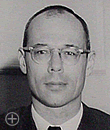
David D. Furman was born in New York City on November 22, 1917. He attended South Orange public schools, Phillips Exeter Academy, Harvard College and New York University Law School. He was editor-in-chief of the Law Review at New York University Law School. He was law secretary to Superior Court Judge Nathan L. Jacobs from 1950-1951. In 1951, he was admitted to the practice of law and became a counselor in 1954. He was appointed a Deputy Attorney General and assigned as Assistant Counsel in the Governor’s Office in January 1954. In April 1955 he was chosen to head the Appellate Litigation section in the Division of Law and became chief of the Division on May 15, 1956. On May 26, 1958, Governor Robert B. Meyner nominated Furman for the position of Attorney General and the nomination was confirmed by the New Jersey Senate on June 2, 1958.
Furman was president of the National Association of Attorneys General and a member of the association’s Executive Committee. He was an instructor at Rutgers University School of Law and in New Jersey Practice at New York University Law School. He was a member of the State and Somerset County Bar Associations.
Grover C. Richman Attorney General 1954-1958
Grover C. Richman, Jr. was born on October 1, 1911 in Gloucester County, New Jersey. He attended public schools in Wenonah, Vineland, Camden, Merchantville, and the William Penn Charter School in Philadelphia. He graduated from Amherst and the University of Pennsylvania Law School with degrees of A.B. and LL.B. He practiced law with his father from 1936 through 1954.
In 1942, he served as Chief Counsel to the Office of Price Administration for seven South Jersey counties. He began his career as an Assistant U.S. Attorney in Trenton in 1944, serving for seven years in that position before being promoted to U.S. Attorney in January 1951. He resigned from that post in June 1953. Richman served as a member of the Camden County Bar Association, New Jersey Bar Association, American Bar and Federal Bar Associations.
Theodore D. Parsons Attorney General 1949-1954
Theodore D. Parsons was born in LaCrosse, Wisconsin on May 24, 1894. He attended Red Bank High School in New Jersey, Princeton University, and Columbia University Law School. He was admitted to the New Jersey Bar in 1919 and then practiced law. He was a Lieutenant in the Air Service in the First World War and served as a test pilot overseas.
Parsons was a trustee for the New Jersey State Bar Association and a member of the American Bar Association. He was appointed New Jersey Attorney General on February 4, 1948.
Walter D. Van Riper Attorney General 1944-1948
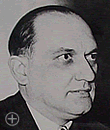
Walter D. Van Riper was born in Morris County, New Jersey on May 18, 1895. He graduated from the Boonton High School, New Jersey Law School and was admitted to the New Jersey Bar in November 1916. He served his law clerkship in the office of Cortlandt and R. Wayne Parker. He was appointed Assistant U.S. Attorney for New Jersey in 1922 and served until 1924. Van Riper was nominated by Governor Walter Edge and confirmed by the State Senate as Attorney General on January 31, 1944, taking office on February 4. He succeeded David T. Wilentz
David T. Wilentz Attorney General 1934-1944
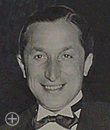
David T. Wilentz was born in Dwinsk, Latvia on December 21, 1894. He attended local public schools and graduated from Perth Amboy High School in 1912. He studied law at New York Law School (LL.B.), where he graduated in 1917. He was admitted to the New Jersey Bar in 1919. Following his studies, he served in the Army during World War I, where he received an honorable discharge as a lieutenant.
He was appointed City Attorney of Perth Amboy in 1928 and, in the same year, became chairman of the Middlesex County Democratic Party. On February 5, 1934 Wilentz was appointed New Jersey Attorney General by Governor A. Harry Moore. While serving as Attorney General, Wilentz made the largest mark of his career by prosecuting the Lindbergh baby kidnapping case. For most of his political career, he was at the helm of Wilentz, Goldman, and Spitzer, which was the law firm he founded in Perth Amboy in 1950.
William A. Stevens Attorney General 1929-1934
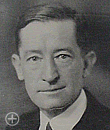
William A. Stevens was born in Stapleton Heights, Staten Island, on July 19, 1879. He was educated in the public schools of Long Branch, graduating from high school in 1897. He later studied at the New Jersey State Normal School in Trenton. He worked in the law offices of Public Utility Commission President John W. Slocum in 1899 as a law student. Stevens entered New York Law School in the fall of 1899. He graduated with a degree of Bachelor of Laws in 1901 and was admitted to the New Jersey Bar in February 1902. Stevens specialized in municipal law.
He was elected to the State Senate in 1919 for an unexpired term. He was re-elected for a full term in 1920, then again in 1923 and 1926. He was chosen Senate Republican floor leader for the sessions of 1923 and 1927. He was President of the Senate for the 1928 session. In 1929 he was appointed Attorney General for a full five-year term.
Edward L. Katzenbach Attorney General 1924-1929
Edward L. Katzenbach was born in Trenton, New Jersey on October 2, 1878. He was educated at Princeton University and Harvard Law School. After graduation from Princeton in 1900 he became an instructor in Political Economy at the university. Upon completion of his law course he was admitted to the New Jersey Bar in November 1905.
Katzenbach was appointed by Governor Edward I. Edwards to the State Board of Institutions and Agencies in 1922. In February 1924, he resigned from the board, having been appointed by Governor George S. Silzer, and confirmed by the Senate as Attorney General.
Thomas F. McCran Attorney General 1919-1924
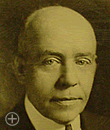
Thomas F. McCran was born in Newark on December 2, 1875. His rudimentary education was received in the Paterson schools. He entered Seton Hall College and graduated from that institution with a B.S. degree in June 1896. In September of that year he became a student in the law office of William B. Gourley, former Assemblyman, and was admitted to the New Jersey Bar in November 1899. He practiced in Gourley’s office until March 1907, and then went into private practice.
He was nominated as Attorney General by Governor Walter Evans Edge on January 14, 1919. The nomination received prompt confirmation, and was viewed as one of the most popular appointments made by the Governor.
John W. Wescott Attorney General 1914-1919
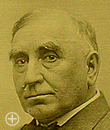
John W. Wescott was born in Waterford, New Jersey, on February 20, 1849. He received a common school education under Charles T. Reed, whom he afterward succeeded as Judge of the Court of Common Pleas of Camden County. He served in that county from 1884 to 1887. At the age of 16, Wescott entered Wilbraham Academy in Massachusetts and graduated three years later. He then entered Yale College, where he spent four years in the classical department and three years in the law department. In 1872 he graduated from the former, and in 1876 from the latter.
On January 20, 1914 Governor James Fielder nominated Wescott to the Office of the Attorney General and he was promptly confirmed by the Senate.
Edmund Wilson Attorney General 1908-1914
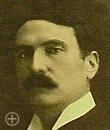
In June 1907, Edmund Wilson became a member of the New Jersey Board of Railroad Commissioners. Wilson resigned his position on the Board when he was appointed Attorney General on November 17, 1908 by Governor J. Franklin Fort. He was appointed for a full term in 1909. He succeeded the Honorable Robert McCarter, who had resigned that office.
Robert H. McCarter Attorney General 1903-1908
Robert H. McCarter was born in Newton, New Jersey on April 28, 1859. He received his education at the Newark Academy and then entered Princeton University where he graduated in 1879. In 1903 Princeton University granted McCarter the degree of LL.D. He studied law in the office of McCarter & Keen in Newark and also at Columbia College Law School where he received his diploma in 1882.
McCarter was admitted to the New Jersey Bar Association in 1882. He began to practice law with his father and became a member of the firm McCarter, Williamson & McCarter. On April 21, 1903, McCarter was nominated Attorney General by Governor Franklin Murphy and the nomination was confirmed by the Senate. The nomination was made to fill a vacancy caused by the resignation of his brother, Thomas N. McCarter. Robert McCarter assumed the position of Attorney General on May 15, 1903, and served for a term of five years.
Thomas N. McCarter Attorney General 1902-1903
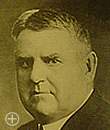
Thomas N. McCarter was born in Newark on October 20, 1867. He attended the Newark Academy and Dr. Pingry’s School in Elizabeth. He graduated from Princeton University in 1888 and studied law at Columbia Law School. He was a member of the firm of McCarter, Williamson & McCarter from 1891 through 1899, when he left to begin his own practice. On September 1, 1900, he formed the firm of McCarter & Adams, which consisted of himself and Edwin G. Adams. On January 1, 1902 he ended his partnership with Adams and withdrew from the general practice of law to accept the position of general counsel for the Fidelity Trust Company of Newark.
From April 1, 1896 to April 1, 1899, he was Judge of the First District Court of Newark. He resigned from this position with two years yet to serve. In 1899 he was elected to the State Senate from Essex county. During his term, he served as chairman of several of the Senate’s most important committees. On March 17, 1902 he was nominated by Governor Franklin Murphy and immediately confirmed as state Attorney General for a five-year term, succeeding the Honorable Samuel H. Grey. In 1903, he resigned to become president of the Public Service Corporation of New Jersey.
Samuel H. Grey Attorney General 1897-1902
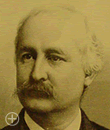
Samuel H. Grey was born in Camden, New Jersey on April 6, 1836. He spent his entire life in Camden, where he was educated at private schools. He was considered one of the best constitutional lawyers in the state. He was admitted to the New Jersey Bar in 1857.
Grey was one of the founders of the Republican party in New Jersey, and for fifteen years served as a Judge of the Court of Common Pleas of Camden county. He served as Prosecutor of the Pleas for Cape May county from 1866 to 1873. From 1868 to 1871, he was a member of the Republican State Executive Committee. He was a member of the Constitutional Commission of 1873 and President of the Constitutional Commission of 1894. In 1897, Grey was appointed Attorney General to succeed the late John P. Stockton. He was unanimously confirmed by the Senate and served under Governor Foster M. Voorhees until 1902.
John P. Stockton Attorney General 1877-1897
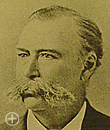
John P. Stockton was born in Princeton, New Jersey on August 2, 1826. He graduated from Nassau Hall in 1843. He studied law with Judge Richard S. Field. Stockton was admitted to the New Jersey Bar in April 1847 and practiced his profession in Princeton until 1857.
In 1858 he was appointed Minister to Rome by President Buchanan and returned home in 1861. In 1865 he was elected U.S. Senator, but his election was held invalid and he resumed his practice in Trenton. In 1868, he was again elected to the U.S. Senate by the Democratic Legislature as successor to Frederick T. Frelinghuysen. He occupied that position until 1875, when he returned to Trenton. Stockton was appointed New Jersey Attorney General on April 8, 1877 and filled that office for four consecutive terms. When his fourth term ended, he resumed practicing law in Jersey City.
Jacob Vanatta Attorney General 1875-1877
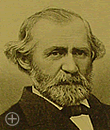
Jacob Vanatta was born in Washington, Warren County, New Jersey on June 4, 1824. He began the study of law in 1845 and was admitted to the New Jersey Bar in 1849. Vanatta was the legal representative for some of the leading New Jersey railroads, and had an extensive practice in all the courts of New Jersey, as well as throughout the United States. In 1875, he was appointed New Jersey Attorney General by Governor Joseph Bedle. He resigned in 1877 to devote his time exclusively to private practice.
Joel Parker Attorney General 1875
Joel Parker was born in Freehold, New Jersey on November 24, 1816. He attended the College of New Jersey, which later became Princeton University, and graduated in 1839. After graduation he worked in the law office of Henry W. Green and was admitted to the New Jersey Bar in 1842.
Parker was elected to the New Jersey State Legislature as a Democrat in 1847, where he took an active interest in tax reform. In 1841, he declined to run for re-election and, in the same year, he was appointed Prosecutor of Pleas for Monmouth County, where he served for five years. Parker was elected brigadier general of the New Jersey militia in 1851 and, in 1860, was appointed major general by Governor Charles S. Olden. On September 4, 1862 he was nominated for Governor by the Democratic party and subsequently became Governor. Parker left the office of Governor in 1866 and returned to his law practice. In 1871, he was again elected Governor, becoming the first person to be elected twice to the governorship. After leaving the governorship for the second time, he served as state Attorney General in 1875. He served as a presidential elector in 1876 and as a Justice of the New Jersey Supreme Court from 1880 until his death.
Robert Gilchrist Attorney General 1870-1875
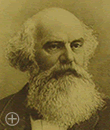
Robert Gilchrist was born in Jersey City, New Jersey on August 21, 1825. He was educated in private schools, studied law, and was admitted to the New Jersey Bar in 1847. Gilchrist was regarded as one of the leading lawyers of the state and was well versed in constitutional law. He served in the New Jersey Assembly in 1857. He served as a Captain in the 2nd New Jersey Regiment at the first call for troops in 1861. In 1866, Gilchrist was the Democratic candidate for Congress in the Fifth District, but was unsuccessful.
Gilchrist was nominated by Governor Theodore Randolph as state Attorney General in 1869. In January 1870, he was reappointed Attorney General for a full five-year term. As Attorney General, Gilchrist advocated the public interest with great success. In 1873, Governor Joel Parker appointed Gilchrist to a commission assigned to revise the New Jersey Constitution. Gilchrist retired from the position of Attorney General in 1875.
George M. Robeson Attorney General 1867-1870
George Robeson was born in Oxford Furnace, New Jersey in 1829. After a thorough preliminary training, he became a student at the College of New Jersey, where he graduated in 1847. He studied law and was admitted to the New Jersey Bar in 1850. After being admitted to the Bar he began his practice in Newark.
In 1858 Governor Newell appointed Robeson as Prosecutor of the Pleas for Camden County. Robeson was nominated state Attorney General by Governor Marcus L. Ward in 1867. He accepted the nomination and was confirmed for the position. He resigned as Attorney General when he received the appointment of Secretary of the Navy by President Ulysses S. Grant on June 25, 1869. He held this office until March 1877 and became a member of Congress from March 18, 1879 through March 3, 1883.
Frederick Theodore Frelinghuysen Attorney General 1861-1867
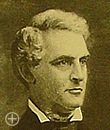
Frederick T. Frelinghuysen was born in Millstone, New Jersey on August 4, 1817. He entered Rutgers College as a sophomore and graduated in 1836. Upon graduation, he studied law in Newark with his uncle. After three years of study he was admitted to the New Jersey Bar in 1839.
He was appointed Counsel of the New Jersey Central Railroad Company, as well as the Morris Canal and Banking Company. In 1861, Governor Olden appointed Frelinghuysen Attorney General. When his term expired, Frelinghuysen was reappointed for a new term. In 1867, he was elected as a Republican to the U.S. Senate to fill the vacancy caused by the death of William Wright.
William L. Dayton Attorney General 1857-1861
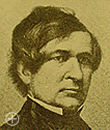
William L. Dayton was born in Somerset County, New Jersey on February 17, 1807. He attended Princeton University, where he graduated in 1825. He studied law and was admitted to the New Jersey Bar in 1830. He worked as a lawyer in Freehold Borough.
In 1837, he was elected to the New Jersey State Council, then became an Associate Justice of the New Jersey Supreme Court the following year. Dayton was the youngest man to ever assume the bench of the Supreme Court. He was appointed to the U.S. Senate on July 2, 1842 by Governor William Pennington of New Jersey. Dayton was nominated for Vice-President by the newly formed Republican Party in 1856, and the following year was appointed state Attorney General by Governor William A. Newell. He served as Attorney General until 1861, when he was appointed Minister to France by President Lincoln.
Richard P. Thompson Attorney General 1852-1857

Richard P. Thompson was born in Salem, New Jersey in 1805. He studied law with William N. Jeffers and was licensed as an attorney in 1825. He prosecuted the pleas of the State for many years with success. While holding this office he was appointed New Jersey Attorney General by Governor Daniel Haines to fill the vacancy created by the death of Attorney General Molleson. When the temporary term expired, he returned to the duties of prosecutor. In 1852, he was appointed Attorney General by Governor George Fort. After being confirmed by the Senate, he held the office for the full term.
Lucius Q. C. Elmer Attorney General 1850-1852
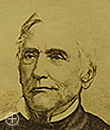
Lucius Q. C. Elmer was born in Bridgeton, New Jersey on February 3, 1793. He attended the private schools of Bridgeton and graduated from the University of Pennsylvania. During the War of 1812, Elmer served in the militia as a Lieutenant of Artillery, then Judge Advocate, and later Brigade Major and Inspector. In 1815, he was called up for examination for his license as an attorney.
In the fall of 1820, Elmer was elected a member of the Assembly from Cumberland county. He served in the Assembly until 1823, and in his last year he was chosen Speaker. He was appointed U.S. Attorney for New Jersey by President Monroe in 1824 and held the position until 1829. In 1843, Elmer was nominated by the Democratic Party as their candidate to represent the First District in Congress. In 1850, he was appointed Attorney General and held the position until 1852, when he was appointed a Justice of the New Jersey Supreme Court, serving the constitutional term of seven years. For many years, he served as Prosecutor of the Pleas for Cape May and Cumberland counties.
Abraham Browning Attorney General 1845-1850
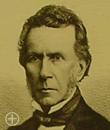
Abraham Browning was born on July 26, 1808 in Camden, New Jersey. He received his early education at the country schools in his home town. After receiving his elementary education, he attended the academy at Woodbury in Gloucester County. He attended the renowned school of John Gummere in Burlington, which was considered one of the most valued educational establishments in the state. Upon leaving school, he became a student in the law office of the Honorable Samuel L. Southard in 1830. He studied in the law office for one year and then entered the law school of Yale College. Browning was admitted to the New Jersey Bar in 1834 and, immediately after, began the practice of law in Camden.
He was the first Attorney General under the constitution and he was appointed to that position by Governor Charles Stratton. He held this position for a regular term of five years.
Richard P. Thompson Attorney General 1844-1845

Richard P. Thompson was born in Salem, New Jersey in 1805. He studied law with William N. Jeffers and was licensed as an attorney in 1825. He prosecuted the pleas of the State for many years with success. While holding this office he was appointed New Jersey Attorney General by Governor Daniel Haines to fill the vacancy created by the death of Attorney General Molleson. When the temporary term expired, he returned to the duties of prosecutor. In 1852, he was appointed Attorney General by Governor George Fort. After being confirmed by the Senate, he held the office for the full term.
George P. Mollesson Attorney General 1841-1844

George P. Molleson was born in New Brunswick, New Jersey on May 25, 1805. He was chosen to the lower house of the Assembly three times in succession. After declining re-election, he was appointed Prosecuting Attorney for the County of Middlesex. The following year, he was promoted to the office of New Jersey Attorney General and held that office for three years.
Richard S. Field Attorney General 1838-1841
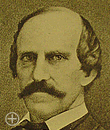
Richard S. Field was born in Burlington County, New Jersey on December 31, 1803. He attended the College of New Jersey, now Princeton University, where he graduated in 1821. He studied law in the office of Richard Stockton and was admitted to the New Jersey Bar in 1825. He became a lawyer, practiced for a short time in Salem, and in 1832 settled in Princeton.
Field served in the Assembly in 1837 and, in 1838, he was appointed state Attorney General, serving for three years. He was a prominent member of the convention that met in 1844 to adopt the New Jersey State Constitution. He taught at the Princeton Law School from 1847 through 1862, and was a founder of the New Jersey Historical Society. In 1862, Governor Charles S. Olden appointed Field to the U.S. Senate. On January 21, 1863 he was appointed United States District Judge for the District of New Jersey. He held this office until his death.
John Moore White Attorney General 1833-1838
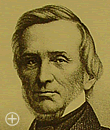
John Moore White was born in Bridgeton, New Jersey in 1770. He studied law with Joseph Bloomfield and received his license as an attorney in 1791. During his professional life, he was the Prosecutor of the Pleas of the state for several years in Cumberland and Salem counties. He was elected a member of the Assembly to represent Gloucester County and was re-elected several times. He was appointed state Attorney General in 1833 and served in that position for a five-year term. When his term ended, he was nominated and elected a Judge of the Supreme Court of the state. He served his term of seven years on the bench and then retired to private life.
Samuel L. Southard Attorney General 1829-1833
Samuel L. Southard was born in Basking Ridge, New Jersey on June 9, 1787. He was educated in a classical school run by Reverend Bob Finley. He attended the College of New Jersey, which later became Princeton University, where he graduated in 1804. He studied law and was admitted to the Virginia Bar Association in 1809. He returned to New Jersey and began practice in Flemington in 1811. Southard was appointed a law reporter of the Supreme Court by the New Jersey Legislature in 1814. The following year he was elected to the New Jersey General Assembly. He resigned from the General Assembly when he was designated to the state Supreme Court bench. He served as Associate Justice of the Supreme Court from 1815-1820.
Southard was elected state Attorney General in 1829. The leader of the National Republican party in New Jersey, Southard was elected Governor of New Jersey on October 26, 1832. He served until February 23, 1833, when he resigned to become a Senator. Southard remained in the Senate for the rest of his life. When not engaged in politics, he was an active member of the New Jersey Bar and occasionally argued before the U.S. Supreme Court.
Theodore Frelinghuysen Attorney General 1817-1829

Theodore Frelinghuysen was born in Millstone, New Jersey on March 28, 1787. He pursued classical studies and graduated with honors from the College of New Jersey, which later became Princeton University, in 1804. He studied law under his brother, John Frelinghuysen, and later under Richard Stockton. He was admitted to the New Jersey Bar in 1808 and set up a law practice in Newark during this time.
Frelinghuysen was appointed New Jersey Attorney General in 1817. He was reappointed twice and remained in office until 1829, when he resigned to become a U.S. Senator. As a Senator, he led the opposition to the Indian Removal Act of 1830. In 1837, Frelinghuysen was elected the second Mayor of Newark, where he served until 1839.
Aaron D. Woodruff Attorney General 1812-1817
Aaron D. Woodruff was born in Elizabeth, New Jersey on September 12, 1762. He graduated from Princeton College in 1779 and was appointed valedictorian of the class. Woodruff was admitted to the New Jersey Bar in 1784. He became Attorney General in 1872 and served until being replaced by Andrew S. Hunter in 1811, then returned as Attorney General a year later, serving the State through 1817.
He also served in the Legislature and was influential in having Trenton selected as the State Capital of New Jersey.
Andrew S. Hunter Attorney General 1811

Andrew S. Hunter was born on July 24, 1776 in Cumberland County, New Jersey. He was educated at his father’s Bridgeton academy, then entered college as a sophomore in November 1789. He was admitted to the New Jersey Bar in 1802. Hunter received the honorary degree of A.M. from Princeton in 1802.
Aaron D. Woodruff Attorney General 1792-1811
Aaron D. Woodruff was born in Elizabeth, New Jersey on September 12, 1762. He graduated from Princeton College in 1779 and was appointed valedictorian of the class. Woodruff was admitted to the New Jersey Bar in 1784. He became Attorney General in 1872 and served until being replaced by Andrew S. Hunter in 1811, then returned as Attorney General a year later, serving the State through 1817.
He also served in the Legislature and was influential in having Trenton selected as the State Capital of New Jersey.
Joseph Bloomfield Attorney General 1783-1792
Joseph Bloomfield was born in Woodbridge, New Jersey on October 18, 1753. As a teenager, he attended the Reverend Enoch Green’s classical academy in Deerfield, Cumberland County. He studied law in Perth Amboy with Cortlandt Skinner, Attorney General of the province. Bloomfield was admitted to the New Jersey Bar in 1775 and began a law practice in Bridgeton, New Jersey.
On February 9, 1776, he entered the Revolutionary Army as captain of the Third New Jersey Regiment. He attained the rank of major on November 28, 1776 and was appointed judge advocate of the Northern Army during the same month. Bloomfield resigned from the Revolutionary Army on October 28, 1778, when he was elected clerk of the New Jersey Assembly.
He was appointed Attorney General when William Patterson resigned in 1783. He was elected Attorney General in 1788, but resigned the office in 1792. In that year, he was elected by the Legislature as one of the presidential electors. In 1801, he was elected the fourth Governor of New Jersey. Bloomfield was again elected Governor in 1803 and served consecutive terms until 1812. In March 1812, he resigned the governorship to accept his nomination as brigadier general in the United States Army. He entered the War of 1812 where his main task was to supervise the training and organization of the defenses of New York and Pennsylvania. After the war, he was elected to the House of Representatives and served from 1817 until 1821.
William Paterson Attorney General 1776-1783
William Paterson was born in Ireland on December 24, 1745. He attended local schools and the College of New Jersey, which later became Princeton University, where he graduated in 1763. He then studied law under Richard Stockton. He was admitted to the New Jersey Bar Association in 1769 and moved to New Bromley, New Jersey where he established his practice.
In 1775, he was chosen to represent Somerset County in the first Provincial Congress, where he accepted the position of assistant secretary. Shortly after, he was named Secretary of the New Jersey Congress and played an important role in drafting the New Jersey Constitution. During the Revolution he was a member of the Legislative Council from 1776-1777 and the Council of Safety from 1777-1778. In 1776, he assumed the post of New Jersey Attorney General, where he prosecuted the Loyalists and maintained law and order during a time of political chaos. He served as Attorney General until 1783, then moved to New Brunswick, where he resumed his law practice.
In 1787, he was chosen to lead New Jersey’s delegation to the Constitutional Convention, where he played an important role by proposing the New Jersey Plan. The state elected Paterson to a seat in the U.S. Senate, where he played a pivotal role in drafting the Judiciary Act of 1789. He resigned from the Senate in 1790 to serve as Governor of New Jersey. In March of 1793, he resigned the governorship to become an associate justice to the U.S. Supreme Court, where he served for the last 13 years of his life.
Cortlandt Skinner Attorney General 1754-1776

Cortlandt Skinner was born in New Jersey in 1728. Following his general education and legal education, he began practicing law in 1749. He was elected to the Assembly in 1761 and was chosen Speaker in 1765. In 1754 he was appointed New Jersey Attorney General by Governor Jonathan Belcher. Skinner was the last of the Attorneys General before the Revolution. At the start of the Revolution, he served under the British crown and was authorized to enlist a corps of loyalists. He continued in command of the corps, serving in the rank of brigadier general. After the Revolution he went to England with his family, where he remained until his death.
Joseph Warrell Attorney General 1733-1754

Joseph Warrell was recommended for a seat on the Council of New Jersey by Governor William Crosby on December 18, 1732. He was made Attorney General in 1733 and served until 1754. He was again recommended to the Council in place of James Alexander, but apparently did not want the office. He was licensed as an attorney in May 1758, and was Clerk of the Circuits from 1766-1768. Warrell also prosecuted the pleas for various counties.
Lawrence Smyth Attorney General 1728-1733

Lawrence Smyth was born in Perth Amboy, New Jersey. He served as Clerk, Register, and Recorder for the East Jersey Board of Proprietors, before assuming the position of New Jersey Attorney General in 1728.
James Alexander Attorney General 1723-1728
James Alexander was born in Scotland on May 27, 1691. He was trained as an engineer officer and received an education in mathematics and the sciences. He emigrated to America in 1715 and in that same year he was appointed Surveyor General of New Jersey as well as New York. In 1718, he became the first Official Recorder of Perth Amboy and he was also appointed Deputy Secretary of New York. Through these positions he acquired large areas of land. Alexandria Township in Hunterdon County is named after him.
In 1721, he became a member of the Council of New York but continued to be active in New Jersey. He studied law and was admitted to the Provincial Bar of New Jersey in 1723. He was an outstanding lawyer who became famous for his support of freedom of the press. He became a member of the Council of New Jersey in 1723 where he served until 1735. Alexander was made Attorney General on June 6, 1723 and served until 1728. He then occupied the role of defender of popular rights because of his interest in legal reform.
Jeremiah Basse Attorney General 1719-1723

Jeremiah Basse was born in England and emigrated to Cohansey, West Jersey by 1686. He held his first important office in 1692 when he became resident agent for the West Jersey Society, a company of English land speculators. Basse was appointed Governor of New Jersey on July 15, 1697 and assumed the office on April 7, 1698. Basse left office in 1699 and was appointed to the post of provincial secretary in 1703, after East and West Jersey were combined into a royal colony. In 1715, he lost his post as provincial secretary but filled other offices. He served for five years as Attorney General and served for brief terms as a representative from Cape May. Basse also served as collector of provincial taxes in Burlington County and provincial treasurer.
Thomas Gordon Attorney General 1714-1719

Thomas Gordon was born in 1652. During the year 1692-1693, he was appointed Deputy Secretary and Register for the East Jersey Proprietors, Clerk of the Court of Common Right, Register of the Court of Chancery, and a Commissioner to try small cases. In 1693, he was appointed Judge of the Probate Court and the next year, was named one of the officers of customs at Perth Amboy. On November 11, 1695, he was commissioned to travel to England to give information to the Board of Proprietors. He was once again commissioned Judge of the Probate Court in 1700. On November 10, 1703 he represented the town of Perth Amboy when the first General Assembly of the Province of New Jersey was convened by Lord Cornbury. In 1703, Gordon was appointed Register of the Council of Proprietors of East Jersey.
When the Assembly convened on May 5, 1708, Gordon was elected Speaker after Samuel Jennings became ill and was unable to perform his duties. Thomas Gordon was appointed Chief Justice by Governor John Lovelace on April 28, 1709. He served only a few months in this position and, in 1710, he was appointed by Governor Hunter to the office of Receiver General of the Province, where he served until 1719. On January 22, 1714, Gordon was appointed Attorney General by Governor Robert Hunter. He was appointed a member of the Council by Governor Hunter and again by Governor William Burnet in 1720, serving until 1722.
Alexander Griffith Attorney General 1704-1714

On August 21, 1703 a Commission of the Peace for the County of Burlington was issued and Alexander Griffith was one of many appointed to the office of Justice of the Peace. He was the first Attorney General of the United Province. Griffith served as Attorney General under Edward Hyde, also known by the courtesy title of Lord Cornbury.



